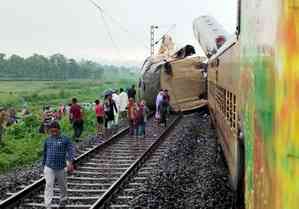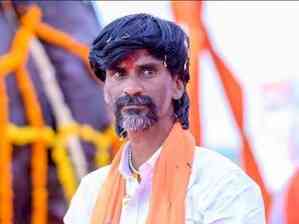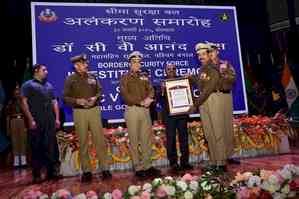Bengal train mishap again brings 'Kavach' safety system under spotlight
Following the tragic train mishap in West Bengal's Darjeeling district on Monday morning where a goods train collided with the Sealdah-bound Kanchanjunga Express, leaving at least nine people dead and many injured, it was found that Kavach, the made-in-India system to help prevent accidents when two trains are moving on the same line, was not available on the tracks.

Kolkata, June 17 (IANS) Following the tragic train mishap in West Bengal's Darjeeling district on Monday morning where a goods train collided with the Sealdah-bound Kanchanjunga Express, leaving at least nine people dead and many injured, it was found that Kavach, the made-in-India system to help prevent accidents when two trains are moving on the same line, was not available on the tracks.
Kavach is a cab signaling train control system with anti-collision features developed by the Research Design and Standards Organisation (RDSO) in association with three Indian vendors. It has been adopted as the National Automatic Train Protection (ATP) system.
Following the mishap, Railway Board Jaya Varma Sinha said: "The Railways plans to deploy the safety system on the Delhi-Guwahati route under its goal to cover over 6,000 km of tracks by next year. Bengal falls within the 3,000 km of tracks set to be protected by Kavach this year. The system will be applied to the Delhi-Howrah route as well."
As per sources, Kavach, which is a costly system to operate, is presently in place on over 1,500 km of tracks, and the Centre aims to cover around 34,000 km of rail network with the safety system. The total network of Indian Railways is more than 1 lakh km long.
Meanwhile, a senior Northeast Frontier Railway (NFR) official said, “Kavach has not been installed yet in the section where the accident occurred. However, this is part of the High-Density Network (HDN) and Highly Used Network (HUN) routes identified for the implementation of Kavach. This train protection system will help prevent such accidents if two trains are on the same track. The probability of error is 1 in 10,000.”
Doubts remain on the sequence of events that led to the accident on Monday morning.
At least nine persons lost their lives after the Kanchanjungha Express, from Sabroom in Tripura to Sealdah in Kolkata, was rammed from the rear by a goods train carrying containers soon after it crossed the Rangapani station.
The loco pilot of the goods train and his assistant as well as the guard of the Kanchanjungha Express were among the dead.
“Prima facie, it seems as if the loco pilot and his assistant on the goods train overshot a red signal and rammed into the Kanchanjungha Express. However, this is a block section where passing of red signals is not allowed at any cost.
"One wonders if both the loco pilot and his assistant had lost their minds that they infringed the red signal and collided with the express train. This would be suicidal. This was around 8.30 a.m. when visibility was good. One wonders whether some sort of ‘paper signal’ had been issued to the loco pilot of the goods train at Rangapani station that permitted him to ignore the red signal,” a senior railway official said.
Fortunately, in this case, there were no unreserved coaches at the rear of the Kanchanjungha Express. The last compartment was a guard-cum-luggage van in which some unreserved passengers travel. This compartment was mangled and thrown onto another track.
All the passengers killed and injured were in this guard-cum-luggage van, also known as the brake van.
--IANS
jayanta/arm


 IANS
IANS 








